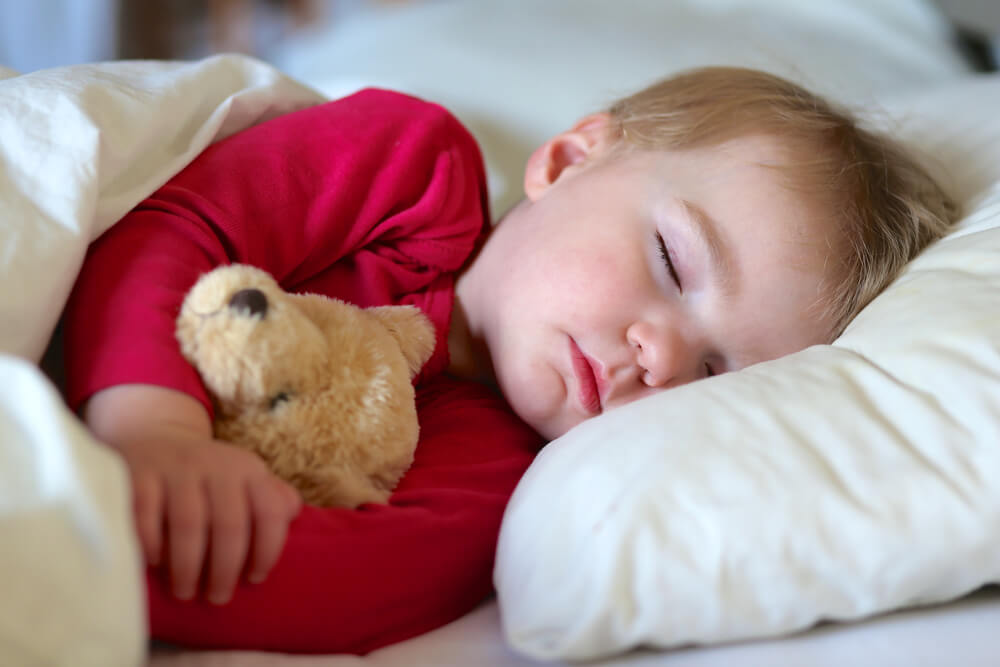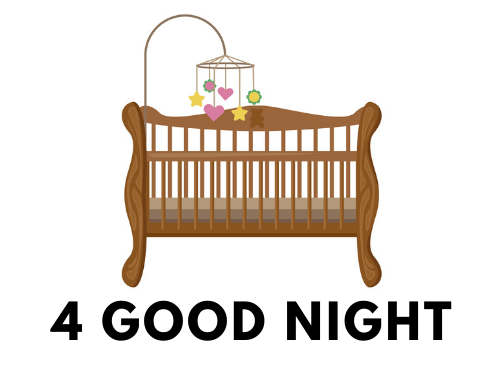Introduction
Congratulations on being a new mom! The journey of motherhood is beautiful, yet filled with numerous questions and concerns. One of the most common ones revolves around the sleep pattern of your 7-month-old baby.
With this comprehensive guide, you’ll delve deep into understanding the typical sleep schedule of a 7-month-old, the challenges that might surface, and how to navigate through them effectively. This post will provide you with essential insights, tips, and strategies to ensure your little one enjoys a healthy sleep schedule.
Understanding the Basics of a 7-Month-Old Sleep Schedule
As your baby grows, their sleep patterns continue to evolve. At around 7 months, most babies need about 14 hours of sleep within a 24-hour cycle, which typically includes two naps and a longer stretch of sleep at night. It’s important to note that every baby is unique, and some might need a bit more or less sleep.
Typical Sleep Patterns of a 7-Month-Old Baby
A typical 7-month-old baby will have a consistent pattern of two daytime naps and 9-11 hours of sleep during the night. However, night awakenings are common due to hunger, teething, or sleep regressions. Most babies are capable of self-soothing at this age, which is a skill that promotes continuous night sleep.
How Many Hours Should a 7-Month-Old Sleep at Night
Generally, a 7-month-old should sleep around 9-11 hours during the night. However, remember that each baby is unique. Some may sleep more, and others less. Ensure the sleep environment is conducive, which includes a dark, quiet, and cool room, as this promotes better sleep.
Ideal Daytime Nap Duration for 7-Month-Old Infants

Typically, 7-month-old babies take two naps a day, each ranging from 1-2 hours. It’s best to spread these naps out, one in the morning and another in the afternoon. This helps maintain a balance between rest and active periods, ensuring overall growth and development.
Common Sleep Problems in 7-Month-Old Babies and Solutions
Sleep problems can range from short naps, frequent night wakings, to refusal to sleep. These can be due to various factors like teething, growth spurts, or separation anxiety. Establishing a consistent bedtime routine, creating a sleep-friendly environment, and responding promptly to their needs can help alleviate these issues.
Sleep Schedule Parameters for 7-Month-Old Babies
| Parameter | Details |
|---|---|
| Morning Nap Duration | 1-2 hours |
| Morning Nap Start Time | 9-10 AM |
| Morning Nap End Time | 10-12 PM |
| Afternoon Nap Duration | 1-2 hours |
| Afternoon Nap Start Time | 1-2 PM |
| Afternoon Nap End Time | 3-4 PM |
| Night Sleep Duration | 9-11 hours |
| Night Sleep Start Time | 6-8 PM |
| Night Sleep End Time | 6-8 AM |
| Total Sleep Duration | ~14 hours |
| Signs of Sleep Deprivation | Short naps, crankiness, hyperactivity, early wake-up, difficulty falling asleep |
Effective Sleep Training Methods for a 7-Month-Old Baby
Sleep training involves teaching your baby to sleep independently. Popular methods include the Ferber method (graduated extinction), the extinction method (cry it out), or gentler methods like fading or no tears. It’s important to choose a method that aligns with your comfort level and your baby’s temperament.
Creating a Bedtime Routine for Your 7-Month-Old
A consistent bedtime routine signals your baby that it’s time to sleep. It can include activities like a warm bath, a bedtime story, or a lullaby. Keep the routine simple and calming, ideally lasting about 30 minutes.
Transitioning Your 7-Month-Old to Two Naps a Day
By 7 months, most babies are ready to transition from three naps to two. Signs of readiness include refusing the third nap or taking short third naps. To make the transition smoother, gradually push the morning nap later and adjust bedtime as necessary.

The Impact of Diet on the Sleep Schedule of a 7-Month-Old
The introduction of solid foods can impact your baby’s sleep as their digestive system adapts. Certain foods may cause discomfort, leading to disrupted sleep. Therefore, pay attentionto their diet and ensure a balance of nutrients, avoiding any foods that may cause discomfort close to bedtime.
7-Month-Old Baby Waking up at Night: Causes and Solutions
Night wakings at this age are often due to hunger, teething, or sleep regressions. If your baby wakes up at night, keep the environment calm and dimly lit, limit interactions, and avoid stimulating activities. This will signal that night time is for sleep, helping your baby gradually return to sleep.
Teething and Sleep Disturbance in 7-Month-Old Babies
Teething can cause discomfort, leading to disrupted sleep. Signs include drooling, gum swelling, and irritability. If your baby seems uncomfortable due to teething, you may use a teething ring or consult your pediatrician for suitable remedies.
Sleep Regression in 7-Month-Olds: What Parents Need to Know
Sleep regression is a period where a baby who has been sleeping well suddenly starts waking up more often and has trouble falling back asleep. It’s often linked to growth spurts or developmental milestones. Patience, consistency, and maintaining a soothing bedtime routine can help during this phase.
Choosing the Best Sleeping Environment for Your 7-Month-Old
A conducive sleeping environment is quiet, dark, and cool. Consider using blackout curtains and a white noise machine if needed. The crib should be free from toys, blankets, or pillows to reduce the risk of suffocation.

Signs That Your 7-Month-Old Isn’t Getting Enough Sleep
Signs of sleep deprivation in a 7-month-old can include crankiness, trouble falling asleep, waking up early, and hyperactivity. Regular sleep patterns and routines can aid in ensuring your baby gets enough sleep.
Professional Advice on Establishing a 7-Month-Old Sleep Schedule
If you’re facing challenges in establishing a sleep schedule, don’t hesitate to consult a pediatrician or a child sleep consultant. They can provide tailored strategies, considering your baby’s unique needs and developmental stage.
Dealing with Sleep Separation Anxiety in 7-Month-Old Babies
Separation anxiety can start around this age, leading to disrupted sleep as babies may resist bedtime or wake up crying. Establishing a consistent bedtime routine and providing comfort objects like a soft toy can help soothe these anxieties.
The Relationship Between 7-Month-Old Sleep Schedules and Developmental Milestones

Sleep is crucial for your baby’s growth and development. Adequate sleep supports cognitive development, physical growth, and emotional well-being. At this age, babies are exploring their environment more actively, so adequate rest is key to consolidate their experiences.
Day and Night Confusion in 7-Month-Old: Tips to Tackle
At 7 months, most babies have figured out the difference between day and night. However, some may still get confused. Regular routines, exposure to natural light during the day, and keeping nighttime quiet and dark can help establish the day-night distinction.
The Role of Pacifiers in a 7-Month-Old’s Sleep Routine
For some babies, pacifiers can be a source of comfort and aid in self-soothing, helping them fall asleep more easily. However, reliance on a pacifier can lead to frequent night wakings if it falls out. It’s crucial to find a balance that works for your baby.
Adjusting Your 7-Month-Old’s Sleep Schedule for Daylight Saving Time

When daylight saving time rolls around, adjust your baby’s sleep schedule gradually, moving bedtime and wake time by 10-15 minutes each day. This will help your baby adjust to the new timings without significant disruptions.
Conclusion
Crafting the right sleep schedule for your 7-month-old can be challenging, but with understanding, patience, and a consistent routine, it becomes manageable. Recognizing your baby’s unique needs and cues is essential in providing them with the rest they need for healthy growth and development. The goal is to ensure your little one is getting enough quality sleep, and this guide is designed to help you navigate that path.
Digging Deeper: Additional Factors in Baby Sleep
Impact of Illness on 7-Month-Old’s Sleep
Illnesses like a cold or ear infection can disrupt your baby’s sleep. Extra comfort, maintaining hydration, and timely medication (if prescribed by the pediatrician) can help manage these temporary disruptions.
Travel and Your 7-Month-Old’s Sleep Schedule
Travel can disrupt your baby’s sleep schedule due to changes in environment and time zones. Try to maintain your baby’s sleep routine as much as possible during travels to provide a sense of familiarity.
Influence of Milestones on Sleep Patterns
Developmental milestones like crawling or babbling can impact your baby’s sleep, as they might wake up to practice these new skills. Patience and consistent routines can help your baby navigate these exciting changes.
Role of Parental Stress on Baby’s Sleep
Your baby can pick up on your stress, which might affect their sleep. Taking care of yourself and managing your stress can indirectly contribute to better sleep for your baby. Remember, it’s okay to ask for help when you need it.

Disclaimer
This post is based on my personal experiences as a mother, observing the sleep patterns of my own children and those of my friends. The advice and suggestions provided are informed by these experiences, coupled with insights gleaned from my pediatrician.
However, every child is unique, and what worked for my children might not necessarily work for others. The content of this post is meant to provide guidance and should not be substituted for professional medical advice. Always consult with a healthcare professional or pediatrician for personalized advice regarding your child’s health and well-being.














